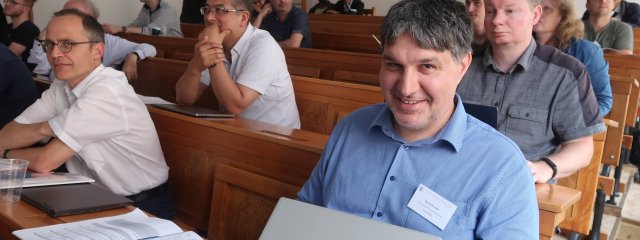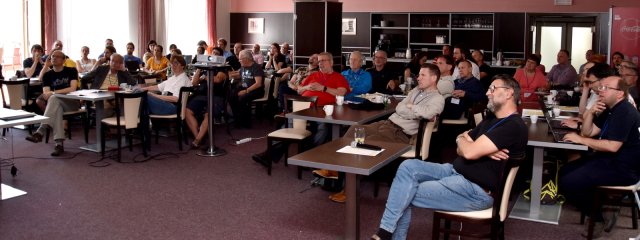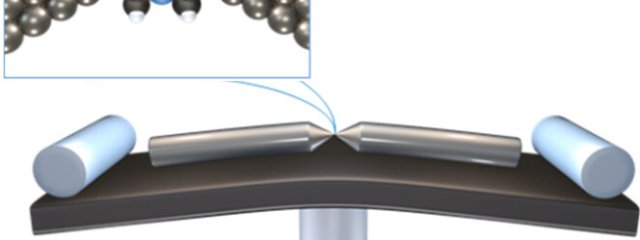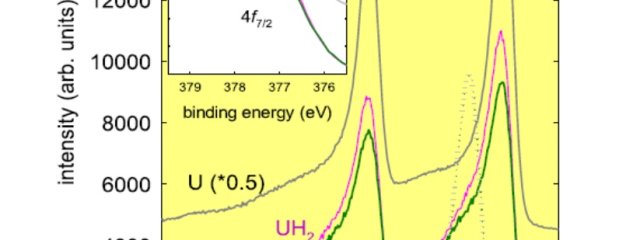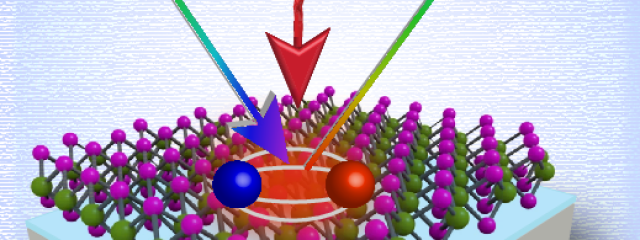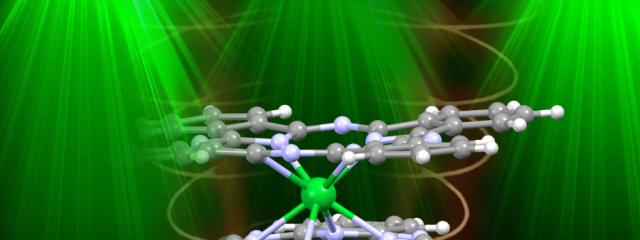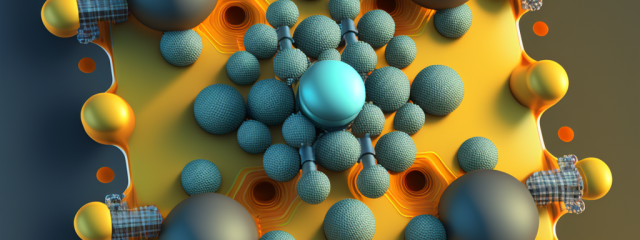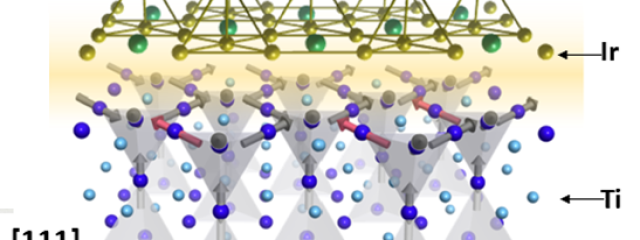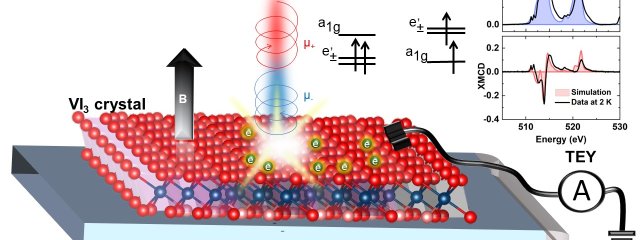News
On 15/6-18/6, we organized the 14th annual conference Prague Colloquium on f-Electron Systems (PCFES). The participants comprised colleagues interested in the physics of lanthanides and actinides, from many countries around the world, from Canada and Argentina to Japan. Among…
In the week May 29 - June 2 we organized in Uherské Hradiště traditional conference Struktura, Struktura 2023 with a rich program and tutorials. Main program was devoted to the presentations of groups and laboratories in the Czech and Slovak Republics…
Ross Colman as a head of the Group of magnetism organizes regularly a Garden party. An informal meeting at the Tuchotice yard took place this year for the third time already and promisingly creates a tradition of meetings the members…
In contrast to silicon-based transistors, single-molecule junctions can be gated by simple mechanical means: by either stretching or pulling the electrodes. The detailed impact of gating on the conductance has to be evaluated by using quantum theory. Our team has…
A new review paper dealing with interaction of actinides with hydrogen and physical properties of actinide hydrides has been published in a high-impact journal Reports on Progress in Physics. Interaction of actinide metals with hydrogen is important for energy or…
Scientists from our faculty have made a groundbreaking discovery in the field of optoelectronics. Our research demonstrates a new way to manipulate excitons in semiconductors using coherent optical interactions, opening the door for ultrafast valleytronics operating at multiterahertz frequencies.
A new type of two-dimensional material that emits structured light has been created by scientists from the Faculty of Mathematics and Physics of Charles University and the J. Heyrovský Institute of Physical Chemistry of Czech Academy of Sciences.
We introduce sulphur isotope engineering for the first time in the transition metal di-chalcogenides family, which enables us to disentangle the crucial role played by phonons in the optoelectronic properties of transition metal di-chalcogenides.
Our in-house characterization of unique pyrochlore heterostructures using X-ray scattering methods contributed to recent work by Jian Liu's research group at the University of Tennessee. They designed and synthesized a pyrochlore heterostructure where the breaking of the spin ice rule…
Our group used a unique capability of the X-ray magnetic circular dichroism technique to determine the magnetic orbital moment component of Vanadium ions in the layered van der Waals system. We have revealed an exceptionally sizable orbital moment of Vanadium…

